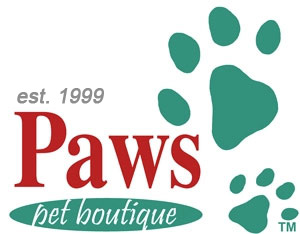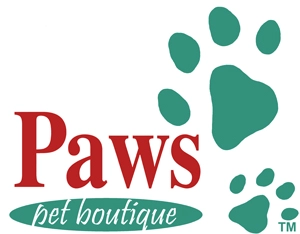Pets and Plants Don't Always Mix
Posted by Michelle, founder of PawsPetBoutique.com in Annapolis, Maryland on 10th Apr 2015
Plants are beautiful, but they don't always interact positively with our furry companions. We reached out to Dr. Marianne (Bailey) Holbein, the owner and veterinarian at Queenstown Veterinary Hospital in Queenstown Maryland, to learn more. Below you'll find which plants are toxic to dogs and what symptoms to watch for if your best friend decides to get too friendly with flowers.

Q. What type of plants should we make sure our dogs steer clear of when we are enjoying time outside?
A. Spring is finally here and you and your dogs have more opportunities to be outside enjoying the weather! If you have a curious dog that likes to dig, make sure they don't dig up the bulbs to your plants. Most bulbs, including those for tulips and hyacinths, can cause irritation to the mouth, esophagus and stomach. If your dog eats these you may notice drooling, vomiting and diarrhea to weakness, in-coordination and seizures. Flower bulbs can be very toxic to dogs!
Ingestion of daffodils may cause similar signs but the flowers of these plants are much more toxic than others. The following plants may also cause oral irritation and similar symptoms: day lily, Easter cactus/lily/orchid, azalea, crocus, rhododendron and morning glory. Additionally, oak trees are common and produce acorns that can be extremely harmful. Acorn ingestion has been linked to acute kidney failure and possible death in dogs.
Lastly, as you're working in your yard, be mindful of which fertilizers you are using. Ingestion of most fertilizers may cause mild oral irritation and vomiting but those containing disulfoton can be fatal.
Q. What should you do if your dog ingests any of the bulbs, plants and acorns you mentioned?
A. If you suspect your pet has ingested any of these plants, try to identify the plant and call your veterinarian immediately. Since most of the plants cause gastrointestinal irritation, they will likely advise you to give hydrogen peroxide to cause vomiting and then recommend further supportive care possibly including fluid therapy, anti-nausea medications, bland diet, etc. If your veterinarian is unavailable, call the ASPCA Poison Hotline (888) 426-4435 or Pet Poison Hotline at 855-764-7661. You should not wait until your pet is showing signs of toxicity to make a phone call.
Q. While we know we should avoid poison ivy, does it have a negative effect on dogs? Also, if my dog comes  in contact with poison ivy can I realize symptoms if I pet him/her?
in contact with poison ivy can I realize symptoms if I pet him/her?
A. Exposure to poison ivy can result in a very itchy, inflamed dermatitis in people due to the uroshiol oils that are released by the plant. Most people will have an allergic reaction to these oils causing a rash of varying severity. Our pets however are immune to the oils and so if they come in contact with the plants, they do not have the same reaction. Their coats also provide an extra barrier to protect their skin but this barrier can be a vector to carry the oils. The uroshiol oil can travel on their fur and may subsequently expose you to poison ivy. If you think your pet has been in contact with poison ivy plants, make sure to give them a bath as soon as possible.
Q. It’s always nice to bring cut flowers into a home. Are there certain flowers that can be harmful to cats or dogs if they eat or touch them?
Most flowers will cause irritation to the mouth, esophagus and stomach if ingested but flowering plants are very rarely lethal. So you should feel comfortable bringing in cut flowers into your house!
Our thanks go to Dr. Marianne Holbein for taking the time to share this valuable information to keep our pets safe. Now you can enjoy time with our pets outside and keep an eye out for those plants that are not so friendly to pets. For more information, or to contact her, visit www.QueenstownVet.com or call 410-827-6776. Watch our Paws Blog for more helpful pet tips coming soon!



